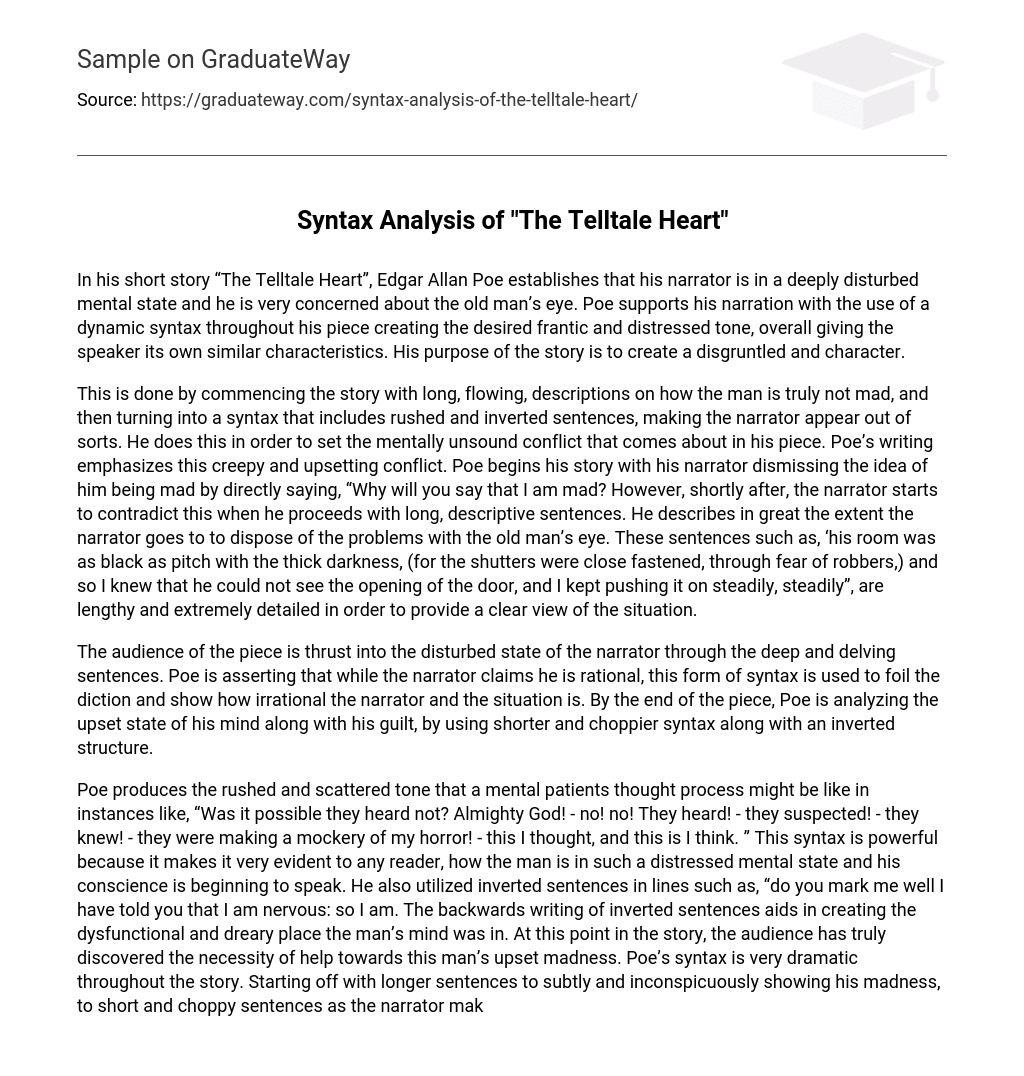In his short story “The Telltale Heart”, Edgar Allan Poe establishes that his narrator is in a deeply disturbed mental state and he is very concerned about the old man’s eye. Poe supports his narration with the use of a dynamic syntax throughout his piece creating the desired frantic and distressed tone, overall giving the speaker its own similar characteristics. His purpose of the story is to create a disgruntled and character.
This is done by commencing the story with long, flowing, descriptions on how the man is truly not mad, and then turning into a syntax that includes rushed and inverted sentences, making the narrator appear out of sorts. He does this in order to set the mentally unsound conflict that comes about in his piece. Poe’s writing emphasizes this creepy and upsetting conflict. Poe begins his story with his narrator dismissing the idea of him being mad by directly saying, “Why will you say that I am mad? However, shortly after, the narrator starts to contradict this when he proceeds with long, descriptive sentences. He describes in great the extent the narrator goes to to dispose of the problems with the old man’s eye. These sentences such as, ‘his room was as black as pitch with the thick darkness, (for the shutters were close fastened, through fear of robbers,) and so I knew that he could not see the opening of the door, and I kept pushing it on steadily, steadily”, are lengthy and extremely detailed in order to provide a clear view of the situation.
The audience of the piece is thrust into the disturbed state of the narrator through the deep and delving sentences. Poe is asserting that while the narrator claims he is rational, this form of syntax is used to foil the diction and show how irrational the narrator and the situation is. By the end of the piece, Poe is analyzing the upset state of his mind along with his guilt, by using shorter and choppier syntax along with an inverted structure.
Poe produces the rushed and scattered tone that a mental patients thought process might be like in instances like, “Was it possible they heard not? Almighty God! – no! no! They heard! – they suspected! – they knew! – they were making a mockery of my horror! – this I thought, and this is I think. ” This syntax is powerful because it makes it very evident to any reader, how the man is in such a distressed mental state and his conscience is beginning to speak. He also utilized inverted sentences in lines such as, “do you mark me well I have told you that I am nervous: so I am. The backwards writing of inverted sentences aids in creating the dysfunctional and dreary place the man’s mind was in. At this point in the story, the audience has truly discovered the necessity of help towards this man’s upset madness. Poe’s syntax is very dramatic throughout the story. Starting off with longer sentences to subtly and inconspicuously showing his madness, to short and choppy sentences as the narrator makes his disturbed mental state obvious.





